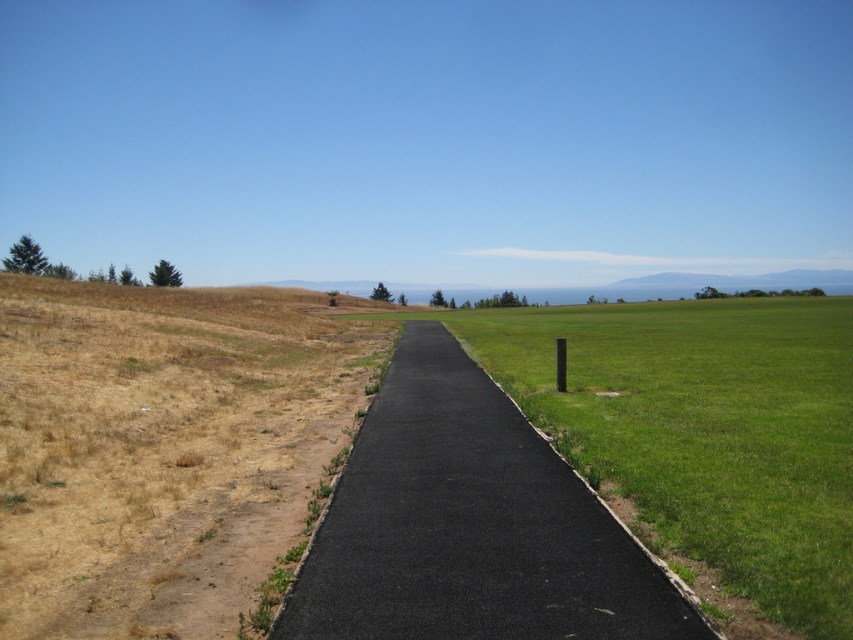
If only I had gone to that other school, then…
If only I had never moved out of the city I grew up in, then…
If only my brother didn’t pick on me when I was younger, then…
If only I was married and in a dedicated relationship, then…
If only I were single and had more freedom, then…
If only I were able to travel the world and be more adventurous, then…
If only I had the stability of a home and community, then…
If only I had time to exercise more, then…
If only I had my neighbors car, then…
If only my parents had put me in gymnastics when I was younger, then…
Then what? I’d be happy? Living in a state of “if,” “should,” “could,” or “would” takes us out of the present moment and living in reality. There is no way of knowing what would or could have been if. And certainly it does not do us any service to should on our self or others. All it does is keep us out of the present moment and stuck in suffering of our own doing. As the saying goes, “the grass is always greener on the other side.” We question and second guess our choices and yes, sometimes our choices do not have the outcomes we imagined, though it’s impossible to know what might have happened had another choice been made. So to dwell on it only causes us to suffer.
Instead of being grateful for our life and appreciating the gifts we do have because of our choices/actions/karma, we dwell on completely hypothetical scenarios of how things could, should, or would have been, living in the past, stewing in our own misery. We also often dismiss or have the inability to see opportunities that are right before us in the present moment. We may have difficulty making decisions and perhaps think something better will come along instead of connecting with our intuition and trusting what is before us in the here and now. Both dwelling in the past and fearing the unknown future is a vicious cycle of the same suffering, a term in yoga philosophy known as samsara. Our goal as yogis is to get out of this rut, to break the cycle of the same suffering, and live in the present moment, connected to our natural state of love, kindness, generosity, and peace. When we are in this state of wholeness and connection with the earth and all beings, we are able to intuit the ideal choices for us in the present.
The grass is always greener on the other side is a mentality of believing that we would be happier in a different set of circumstances, yet the other circumstances are not really any better. For example, we might work with a business that we feel takes a lot of our time and energy and wish we had our own business. Then we have our own business and wish we had the security and steady work hours of our previous job. It’s easy to play the role of the victim, “poor me,” and blame others – co-workers, family members, the government, and so on for our unhappiness. Nothing is ever good enough until we step out of the role of the victim and come to the realization that we are responsible for our own happiness, no matter what the circumstances. In any situation, it is our choice to be a state of clarity, happiness and peace or doubt, frustration, and anger. For a practitioner of yoga, the choice is clear. We choose happiness. The goal of all yogic practices is to be whole and happy–to realize our interconnectedness with all beings. When our choices do not result in the outcome we desired and we may live in the past, blaming and feeling frustrated – qualities of disconnection. This takes us further away from our goal of interconnectedness and happiness. Patanjali recommends in the Yoga Sutras two methods to assist us on our yogic path of happiness and they are, having a consistent spiritual practice (abhyasa) with non-attachment (vairagya) to the results of our actions.
We live our life and we take action without attachment to results. Meaning, we do not compare ourselves to others or get caught up in what could, should, or would have been if. When we believe the myth that the grass is always greener on the other side, this is when troubles in life occur and our mind is disturbed. Believing that others have the “good stuff” and what we are doing or participating in is not good enough may leave us feeling full of doubt, dissatisfaction, anxiety, and stress. And, often greed has a tendency to take over and we want more and more and more, without feeling fulfilled with what we do have.
Patanjali’s Yoga Sutras, Book 1, Sutra 12: abhyasa-vairagybhyam tat-nirodhah
One way to translate this sutra is, through a consistent spiritual practice and non-attachment to results of our actions, what is often referred to as “mind-stuff,” which are our unkind, fearful, doubtful, frustrated thoughts, words, and actions, they are regulated and greater peace is attained.
I have a daily intention, which is to realize yoga, more deeply understanding the interconnectedness of all of life. I practice cultivating this state of yoga or inner peace through what I choose to think, listen to, communicate, wear, eat, consume, educate, and so on, essentially through all my thoughts, words, and actions, with a greater intention to create world peace. At the end of the day, when I see the results of my kind actions to other beings and the earth through the practice of an ahimsic, or non-violent vegan, lifestyle did not lead to world peace, then I have the choice to get upset and blame others, dwell in my choices of what I should have done differently. Or I may also choose to work on it again the next day and the next day and the next day. This is what our yoga practice is all about—continuing to be kind and loving through our thoughts, words, and actions, remembering our purpose and staying focused without attachment to the outcome.
So, before getting caught up in the grass-is-greener-on-the-other-side syndrome, we connect with the wonderful opportunities life has presented to us. We embrace our current life circumstances and choices and continue on the journey to realizing yoga, that state of being whole and happy. Consistent practice without attachment to the results catapults us to yoga, to union.
Anna Ferguson, World Peace Yoga teacher is passionate about yoga as a lifestyle and bringing the yogic teachings into all aspects of life from how we choose to communicate to what we eat and loving all beings.
